Let’s Explore Europe by Rail!
Sustainable travel tips and ideas from Clara Francken, vlogger, podcaster, and slow travel advocate.
With the goal of traveling more sustainably, Clara Francken, a 28-year-old podcaster and vlogger from Belgium, began her journey across Europe by train. Traveling by train comes with its ups and downs but every trip leaves you with a story to tell. In this article, Clara shares a few of her stories with REVOLVE.
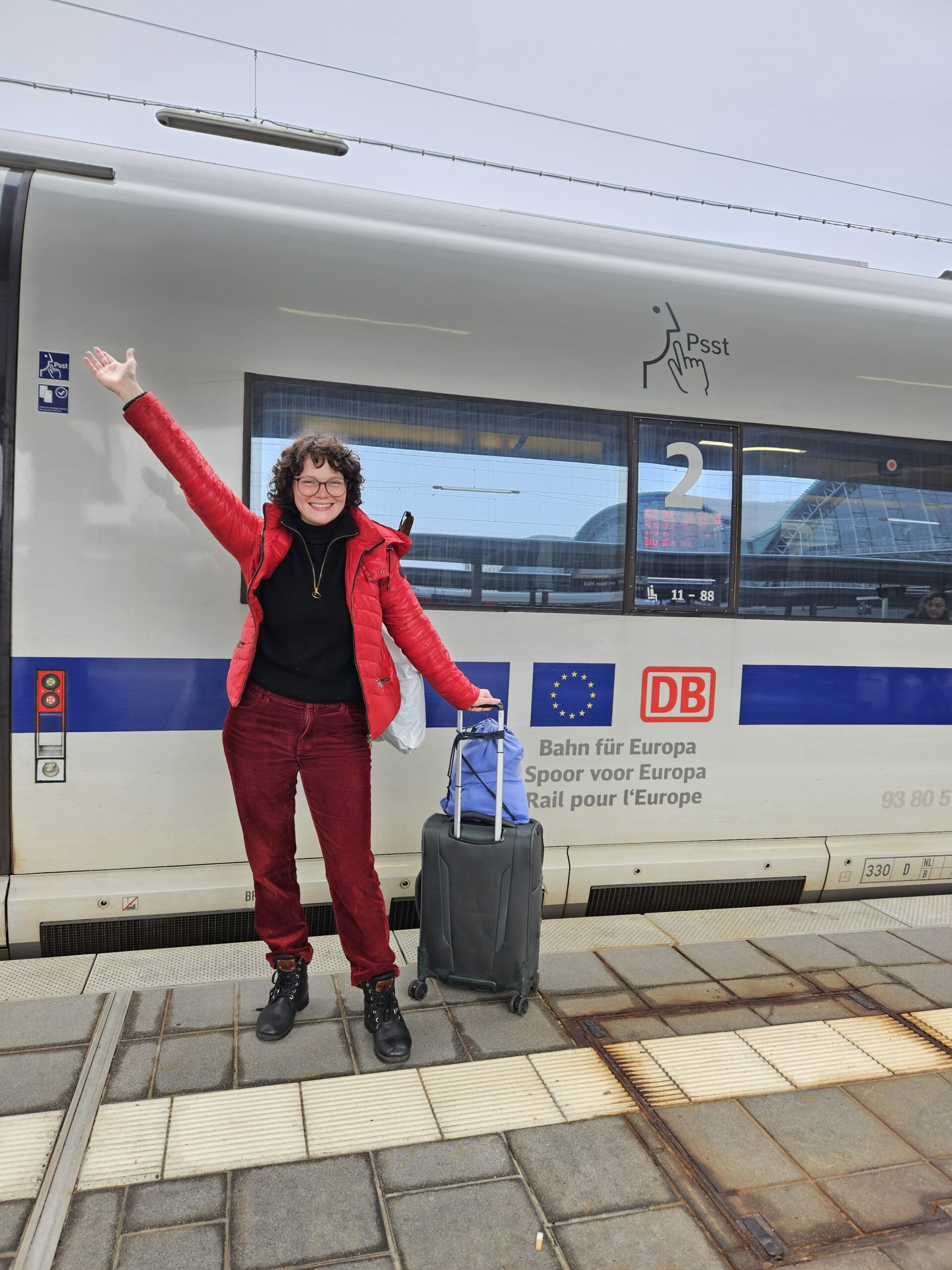
How did you decide to start traveling by train?
It all began with my long-distance relationship which led me to travel from my home country, Belgium, to my partner’s, Germany.
I met my partner during my Erasmus in 2018 in Leipzig, Germany. After my exchange, we needed to visit each other to make the long-distance relationship work. At the beginning, we used to travel by plane, flying Ryanair from Berlin and Charleroi Airport or vice versa. Although the tickets were cheap, I quickly realized that the full trip wasn’t cost- or time-effective. True, the flight was only one hour long but, when you combine that with the pendle bus to Charleroi Airport, the early check-in, and another final bus between Berlin and Leipzig, the travel time and price increased.
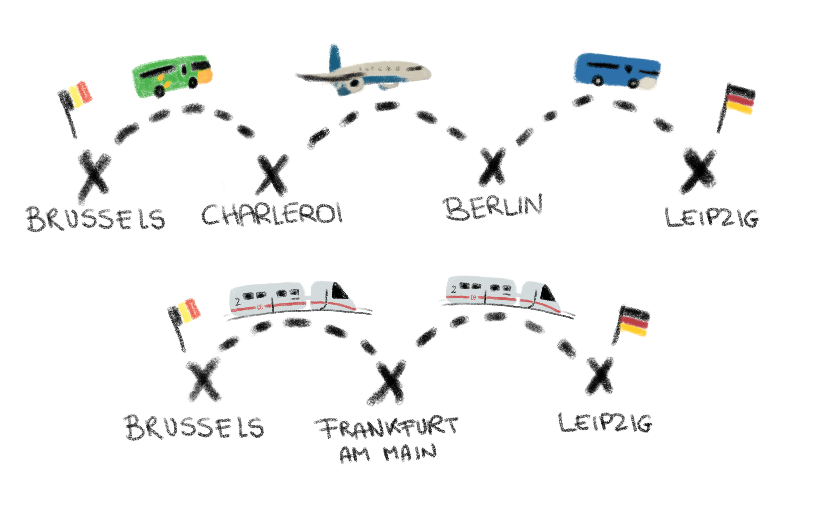
The main reason why I chose to travel by plane was because I assumed that flying was the cheapest option. However, when I thought about the emissions that flying generates, together with the not-so cost or time-effectiveness of flying from Charleroi to Berlin, I started researching other travel solutions. After some Internet digging, I discovered that I could find affordable train tickets between Belgium and Germany, with only one transfer per trip. The cheapest ticket I ever found was €17,50 for a one-way trip. Traveling by train also had other benefits that I had not thought of, such as the ability to work thanks to quiet zones and stable internet connections—I now mostly edit videos on the train.
Many people dislike trains because of the delays. Have you encountered a lot of delays over the years?
I certainly have — too many to count! But I would like to add that I always made it to my destination. It is all about the right mindset: if you focus on the negative, you will end up joining the grumpy German passengers complaining about the country’s train system. However, I choose to see delays as small, unexpected, adventures that will also get me a refund. Refunds for delays in Germany are up to 50% of the ticket price and, with the frequent delays, I can almost always count on getting some money back, which I then save for future trips.
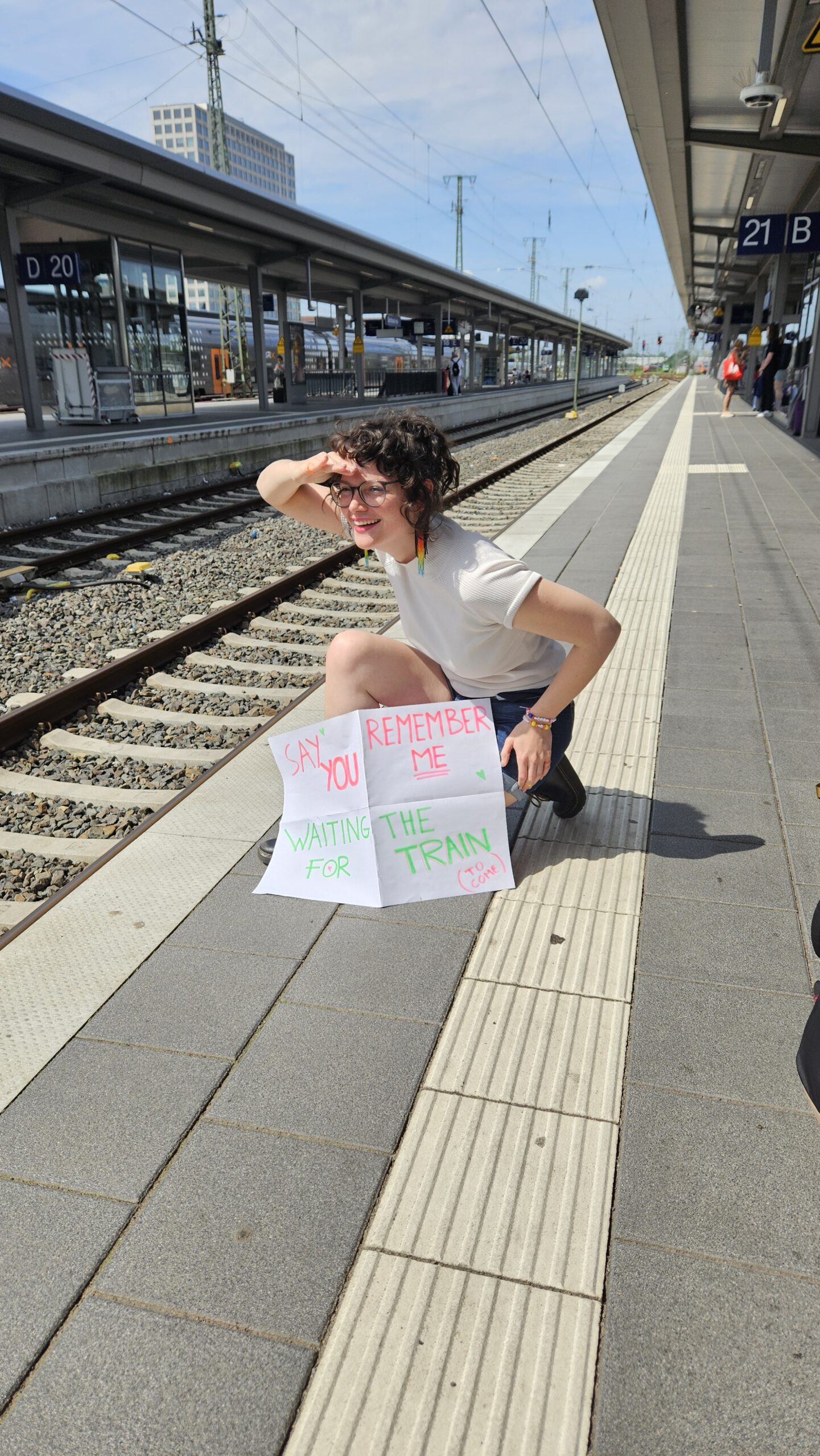
Did you ever sleep elsewhere because of a delay?
Yes, once, but, usually, if the delay is severe, the train company arranges replacement buses, or, if I am lucky enough to know someone nearby, I ask them to pick me up. However, I did have to sleep in a hotel not long ago when I missed a connection because of delays on my train from Leipzig to Frankfurt. We all watched our connecting train leave right in front of us. Even crew members were frustrated, as the delay meant they wouldn’t get home that evening either. Service attendants were also affected, as they had to make another train wait because they still needed to provide drinks on board. The train company Deutsche Bahn was very helpful, though—they gave me a coupon for a nearby Ibis Hotel, with free breakfast included, and a train ticket for the next day.
Have you been on multi-day trips in Europe?
I have taken the Interrail ticket for multi-day trips — between Germany and France, Belgium and Spain, and for what has been my longest train trip: Greece to Germany. For those trips, Interrail proved to be the cheapest option, a reminder that it is worth checking all the available options when traveling on a budget. In this case, I calculated the price of the Interrail ticket plus seat reservations and compared it to regular train and plane tickets. It is important to check the seat reservations because, in many countries, these are mandatory, in addition to your Interrail ticket.
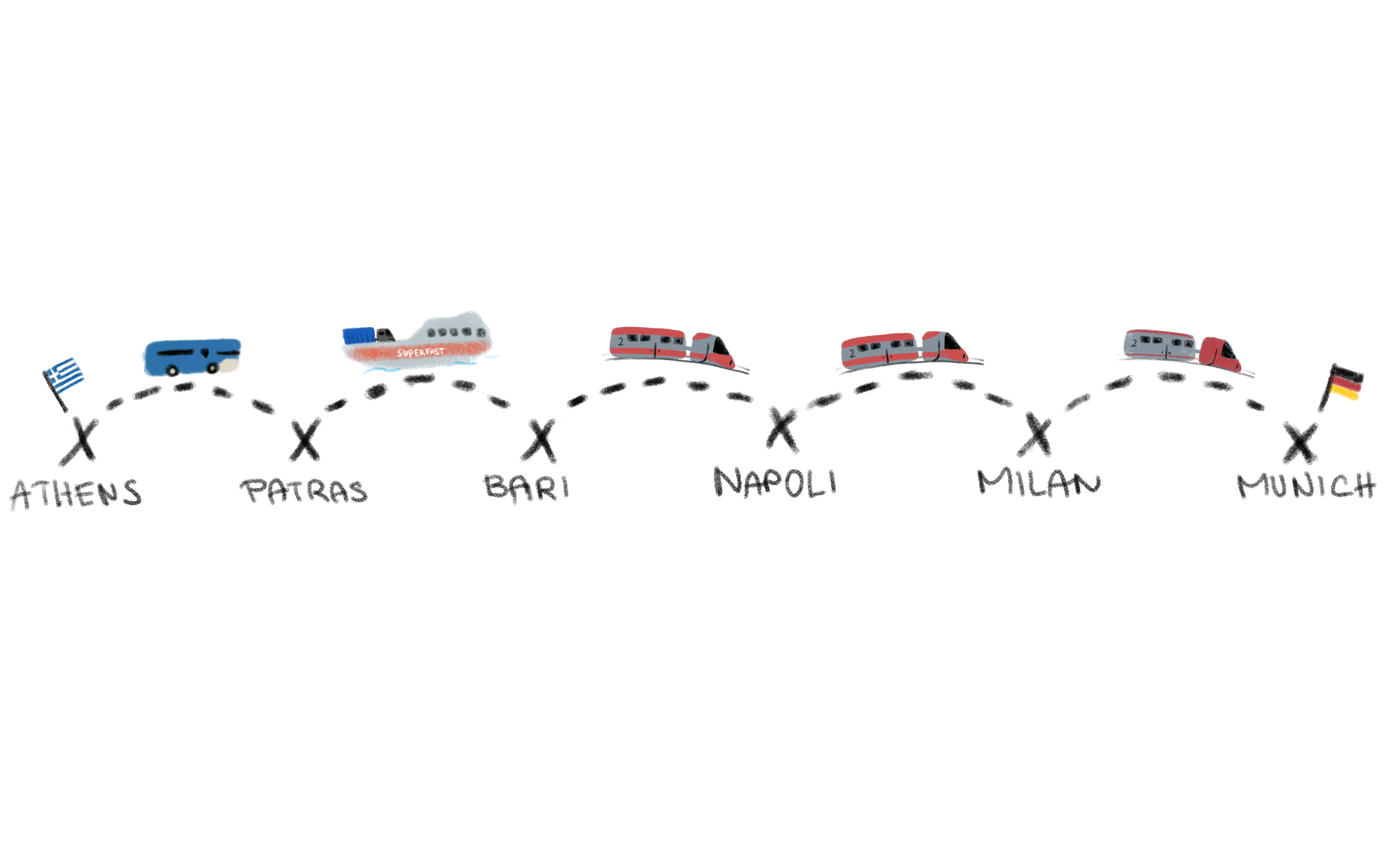
How was your experience traveling from Greece to Germany by train?
The Interrail phone application has a feature that shows you an overview of your trips. For instance, for my trip between Athens and Munich, the app recorded the following statistics: a total of 11 trains, equaling 6,890 km and 35 total hours onboard. Given that I stayed in multiple cities along the way, the journey felt longer. For getting from Greece to Germany, there are two alternative modes of transport and routes: crossing the Balkan countries, which requires multiple buses, or taking the ferry from Greece to Italy. The ferry was the best solution for getting there in a reasonable amount of time.
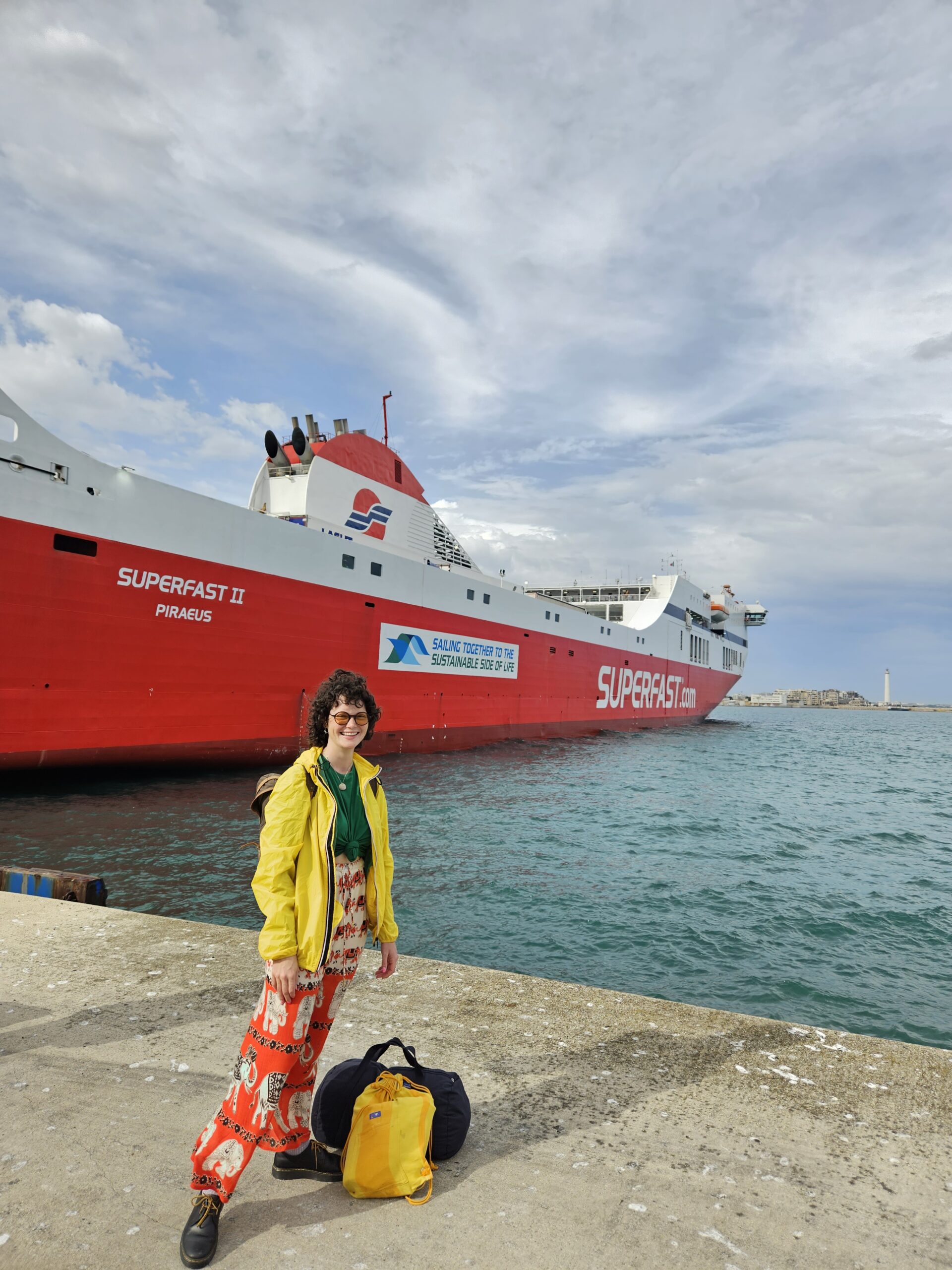
What is it like to travel solo?
It was fun, exciting and I felt alive. What I loved the most was the flexibility that comes with traveling solo. At the same time, I didn’t feel alone for multiple reasons. Firstly, I traveled to many places where I already had friends with an apartment and a couch for me to crash on. Secondly, when traveling solo, it’s easy to make friends along the way. When embarking on the journey from Greece, I quickly realized that. When taking the bus between Athens and Patras, to get to the ferry, I got to know two other Interrailers just by looking for the bus stop. In Patras we then proceeded to find the road to the ferry port together, looking after each other’s bags whilst the other has to leave, and exchanging stories of our previous travels.
Once we arrived at the port of Patras, we had to walk towards this gigantic red and white ship. It had an escalator at its entry, many different rooms to sleep in, a dining room and even a casino. Whilst looking for where I was going to sleep over night, we met another guy who was doing the same thing. We had dinner and breakfast together and even explored Italy together the first day before saying goodbye and never seeing each other again. Strangers can easily become friends or a safe place when traveling solo.
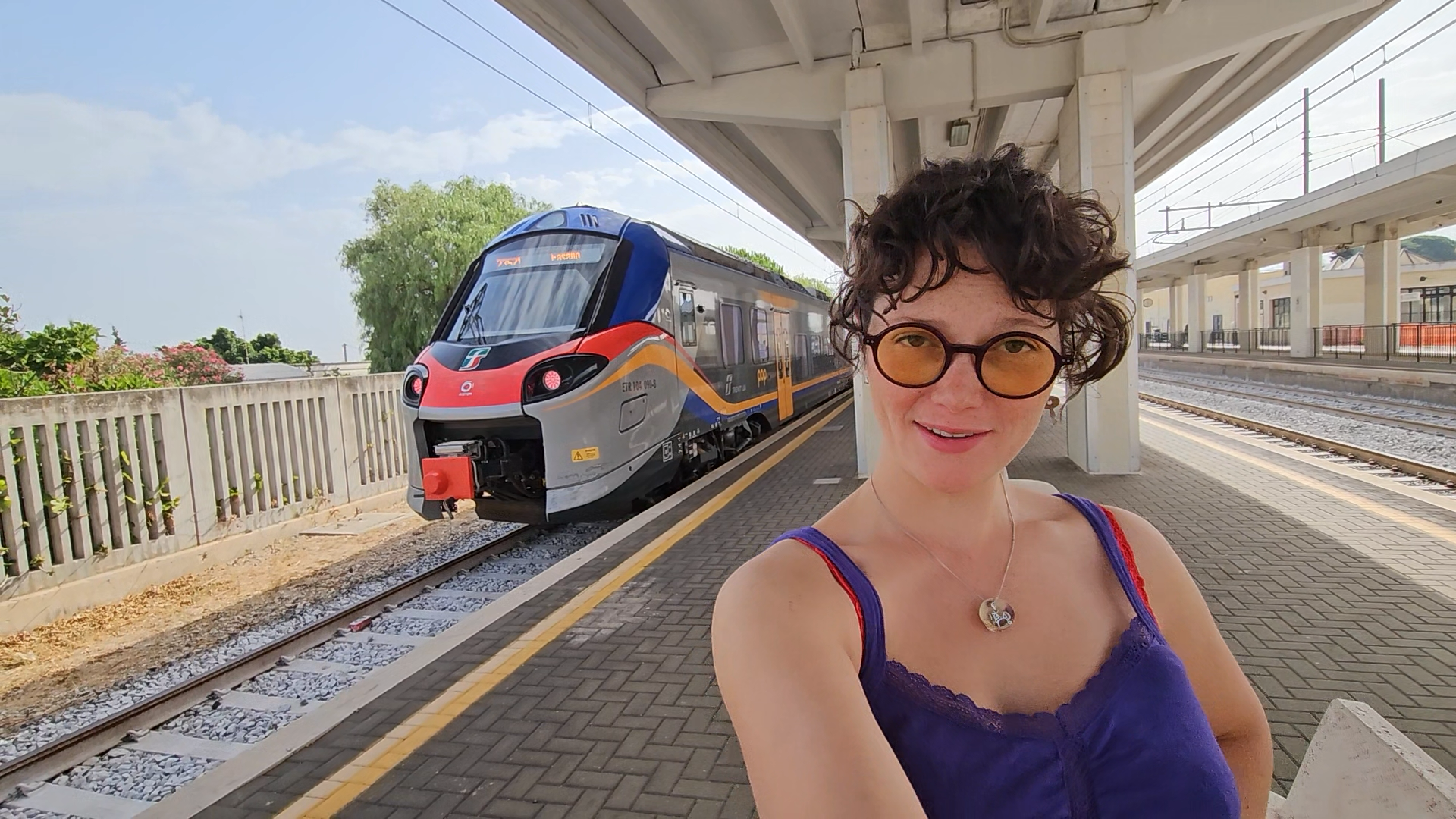
Why is traveling by train important to you?
For me it is all about the environmental impact and truly experiencing the journey. Train travel stands out as one of the most eco-friendly modes of transportation because it emits significantly less CO₂ per passenger and kilometer when compared to cars and planes. My second reason for experiencing the journey is about having a true understanding of the distance. Unlike air travel, where you quickly jump from one country to another, trains offer a gradual transition where you can observe the changing landscapes and interact with locals. I feel more conscious of my surroundings, which I find important as I am often on the road.
I also want to inspire others to travel more sustainably, which is why I started my YouTube channel, where I share tips and experiences about train and bicycle travel. I also host a podcast called “Travel Devil”, where I interview fellow travelers about their eco-conscious journeys. I’m also always open to answer questions about train travel, so feel free to DM me on Instagram.
Checklist for Cheap Train Tickets
- Book 1-2 months before departure
- Choose off-peak times (weekdays, early mornings)
- Compare national websites with comparison websites (Trainline, Omio)
- Check for student/age-related discounts
- Look out for discount periods (such as summer sales)
- Subscribe to railway newsletters to get discount codes
- Use discount cards from national railway companies
- Utilize loyalty programs if possible
- Use rail passes for multi-day journeys (Interrail)
- Compare buying split tickets to buying the full journey at once